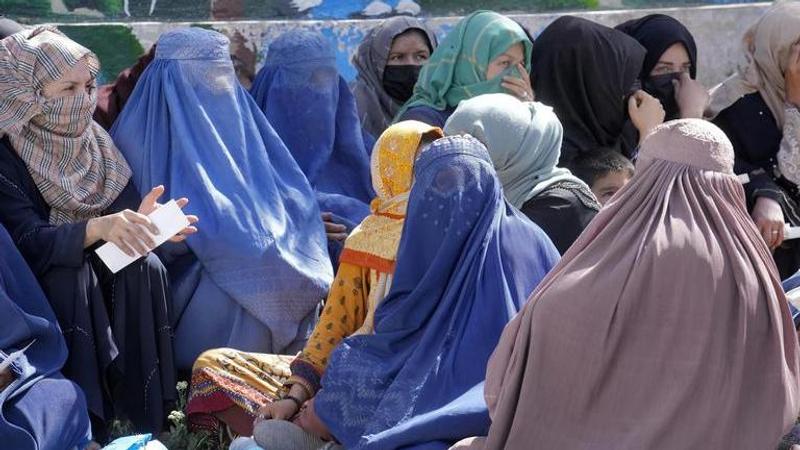Published 21:26 IST, June 3rd 2023
Over 2.5 Million Afghan Girls Deprived of Education, says US Special Envoy
Under the Taliban's rule, women and girls have faced severe restrictions, with limited participation in public life, employment opportunities, and education.

In a recent statement, US Special Envoy for Afghan Women, Girls, and Human Rights, Rina Amiri, shed light on the distressing situation faced by females in Afghanistan, highlighting that more than 2.5 million girls are currently deprived of education. The plight of Afghan women and girls in the war-torn country was emphasized during a Human Rights Council meeting, as per a report from Khaama Press.
Amiri stressed the urgent need for girls' education in Afghanistan, emphasizing that every single girl deserves access to quality education. This call comes at a time when secondary institutions and universities that previously admitted female students were forced to close due to the oppressive attitudes of the Taliban, who regained control of the country in August 2021.
Life under Taliban
Under the Taliban's rule, women and girls have faced severe restrictions, with limited participation in public life, employment opportunities, and education. The recent wave of restrictions has garnered global outcry, particularly regarding Afghan women's inability to work for UN agencies or international assistance groups.
Despite international calls for equal access to education and employment for Afghan women and girls, the Taliban leadership has ignored these pleas. Furthermore, they have issued warnings to other nations, cautioning against interference in Afghanistan's domestic affairs.
The denial of education for over 2.5 million Afghan girls underscores the pressing need for action to address this critical issue. Advocates and human rights organizations continue to raise awareness about the importance of empowering Afghan women and girls, advocating for their right to education and equal opportunities. Efforts to support girls' education and empower women in Afghanistan are crucial not only for the individuals affected but also for the long-term development and stability of the country.
Taliban 2.0 same as Taliban 1.0?
When Taliban came to power in 2021, there was a lot of talk about how Taliban has reformed. It turns out that Taliban hasn't reformed. Under the first Taliban rule in Afghanistan from 1996 to 2001, women's lives were severely restricted and subjected to oppressive and discriminatory practices. The Taliban's interpretation of Islamic law, coupled with their strict enforcement, resulted in a highly repressive and gender-segregated society. Here are some key aspects of women's lives during that period.
The Taliban banned education for girls beyond primary school level. Schools for girls were closed, and women were prohibited from attending universities or pursuing higher education. This denial of education severely limited women's opportunities for personal development and empowerment.
Women were also banned from working outside the home, with few exceptions such as in the healthcare sector. This restriction resulted in the loss of livelihoods for many women and their families, leaving them economically dependent and vulnerable.
Moreover, women were forced to adhere to a strict dress code known as the burqa, covering them from head to toe, including their faces. Violations of the dress code were met with severe punishment. Women's freedom of expression and individuality were suppressed. Taliban 2.0 is pursuing the very same policies again.
Updated 21:26 IST, June 3rd 2023




